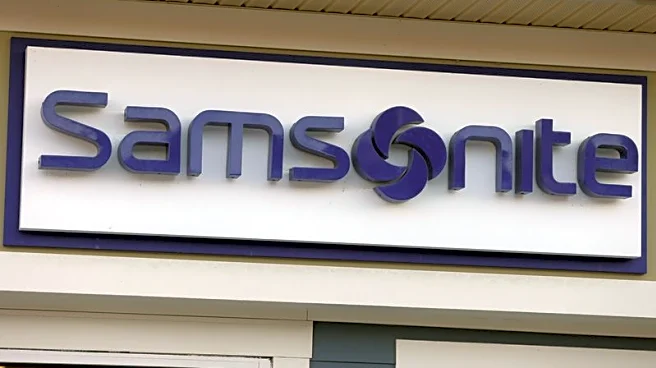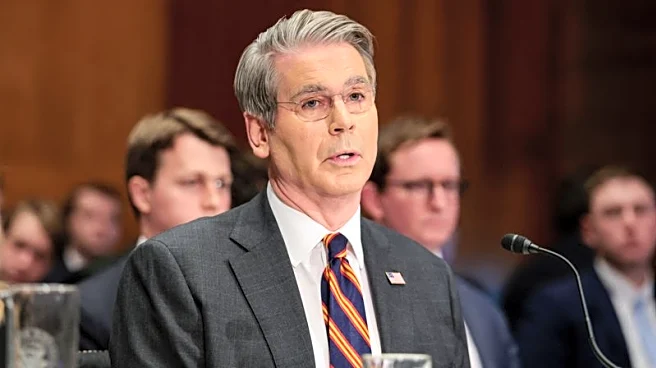What is the story about?
What's Happening?
The United States is set to increase visa fees for foreign travelers, effective September 30. This change, part of President Trump's 'One Big Beautiful Bill,' will affect the Electronic System for Travel Authorization (ESTA) fees, which will nearly double from $21 to $40. The fee hike applies to travelers from over 40 countries participating in the Visa Waiver Program, including the United Kingdom, Australia, and most of Europe. Additionally, fees for travelers entering through land borders will rise from $6 to $30, and a new $30 enrollment fee will be introduced for Chinese travelers using the Electronic Visa Update System. These changes come amid a significant decline in international visitor spending in the U.S., projected to result in a $12.5 billion loss in 2025.
Why It's Important?
The increase in visa fees is significant as it may further deter international travelers from visiting the United States, exacerbating the current slump in tourism. The World Travel and Tourism Council has already projected a substantial decline in international visitor spending, which could impact the U.S. economy, particularly in sectors reliant on tourism. The fee hikes could also affect diplomatic relations with countries whose citizens face increased travel costs. While some experts believe the fee increase may not significantly hinder travel, the introduction of the visa integrity fee raises questions about compliance and its potential impact on travel behavior.
What's Next?
The Department of Homeland Security has indicated that the visa integrity fee requires cross-agency coordination before implementation, suggesting potential delays or adjustments. Stakeholders, including travel agencies and foreign governments, may respond to these changes, possibly advocating for reconsideration or adjustments to the fee structure. The tourism industry may need to explore strategies to mitigate the impact of reduced international travel, such as promoting domestic tourism or enhancing travel incentives.

















